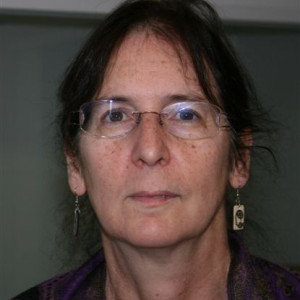Prof. Valery Terwilliger

From
In residence at
ISTO (Institut des Sciences de la Terre d'Orléans) / CNRS, BRGM, University of Orléans - FR
Host scientist
Dr Jérémy Jacob
PROJECT
Compound-specific hydrogen isotopic analyses for unravelling present and past hydrological regimes. From biosynthesis to water cycle.
Knowledge of past changes in the water cycle can directly contribute to understanding the environmental and geophysical consequences of Global Climatic Change on water resources. Reconstructions of palaeoenvironmental changes are now being linked to the trajectories of societies. The knowledge emerging from these research links is inspiring strategies to reduce anthropogenic impacts on the water cycle, for example, through reductions in water consumption by intensive agriculture.
Within the context of building an understanding of relationships between past changes in the water cycle and developments in societies, we have initiated an ambitious project at ISTO based on our recent technological advances that allow the measurement of hydrogen stable isotopes (deuterium/hydrogen ratio or dD) on single biomolecules extracted from geological archives (peats, soils, sediments) or living plants. The dD values of these plants or plant-derived materials are related to the hydrological conditions that prevailed at the time these biomarkers were produced. Thus, compound-specific dD constitutes a powerful tool for quantifying the past and present parameters of the hydrological cycle in natural and anthropised continental ecosystems.
The proposed project aims at federating several actions in ongoing projects engaged at ISTO encompassing the development of new diagnostic tools for unravelling past and present hydrological conditions:
- The PalHydromil project (ANR JC, 2010) objectives are to reconstruct the hydrological variability that prevailed during the Bronze Age in the Alps by measuring dD on a molecular biomarker specific of millet (Panicum miliaceum), miliacin, preserved in Lake le Bourget sediments dated from this period. These reconstructions will be sustained by a calibration effort that will permit relating miliacin dD with environmental parameters through the cultivation of millet in controlled conditions.
- The IsEauGrain project (Région Centre 2010) will explore the potential of compound-specific dD to evaluate the reasonable use of water in cereal cultivation. The rationale is that compound-specific dD depends on water dD and on the amount of water available for plant development. Cultures of maize, wheat and millet in controlled conditions will allow verifying this hypothesis.
- The PeatWarm project (ANR VMCS, 2008-2011) evaluates the impact of in situ manipulated warming (in wet and dry conditions) on the functioning (sink or source of C) of temperate peatlands. The ultimate objective is the creation of a biogeochemical model of C coupled with N and S cycles that attempts to extrapolate changes to the system over the next two decades.
The Studium Research Associate will contribute to all these projects by bringing an original expertise on isotopes biochemistry that will advance our understanding of the intimate mechanisms during biosynthesis that affect the isotopic record of environmental parameters through organic biochemicals. He/she will specifically coordinate all aspects concerning the biochemical fractionation of hydrogen isotopes from water absorption to chemical biosynthesis. We also expect that he/she proposes and realises alternative and additional experiments allowing a better understanding of these fractionations. In addition to joint scientific publications, participation to the training of the PhD students and the setting of original experiments, we expect from the Research Associate to prepare with us, at the term of this project, an international project (ERC or NSF) to pursue our investigations and stabilize our collaboration.
